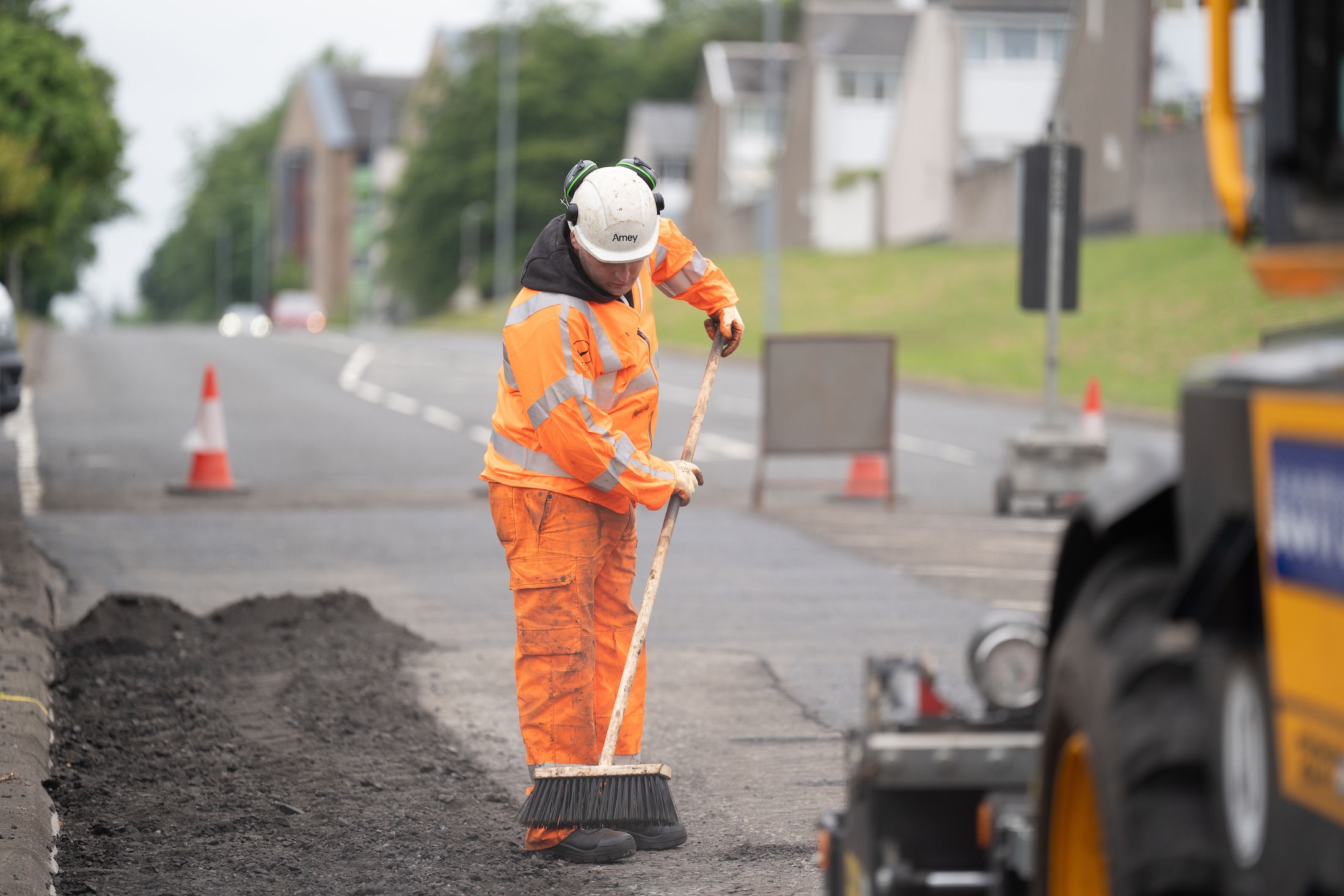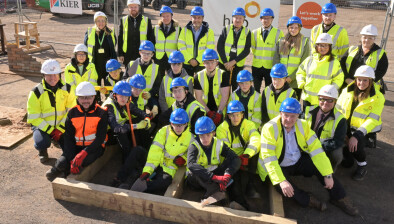Centre of Excellence runs first low carbon trials for roads industry in North Lanarkshire

The first trials of new materials designed to reduce carbon in the roads industry have taken place in North Lanarkshire with more planned for 2025.
North Lanarkshire Council is working in partnership with Transport for West Midlands, Amey and Colas, as part of ADEPT Live Labs 2, a three-year UK-wide £30 million programme funded by the Department for Transport aimed at decarbonising the local road network.
As part of the programme, the partners have created the Centre of Excellence for Decarbonising Roads (CEDR), which will provide a platform for the identification, development and sharing of industry best practice for low carbon materials
There are high levels of carbon contained within many materials used on our road network, from bitumen (or tar) used to surface roads, to the paint for road markings, the vehicles used in maintenance, and structures like bridges and barriers. CEDR is looking for and testing alternative materials to reduce carbon in the roads industry, including how we can build roads that last longer or with materials from natural, renewable sources.
This year, live trials have taken place with a range of innovative materials to reduce carbon in the roads industry: a surface rejuvenator which aims to extend the life of the road; products to repair potholes; road marking materials; and a biogenic asphalt solution all of which reduce the carbon footprint of road maintenance operations.
In addition, CEDR has assessed a push-off trailer that is used to transport hot material from the quarry to site and this has higher levels of insulation than traditional vehicles.
Regular inspections of the trial sites are ongoing to monitor the condition and performance of each product over time.
Other trials are planned with an anti-icing additive for asphalt designed to prevent ice forming on pavement surfaces, reed-based signage material, and the latest asphalt materials.
Councillor Helen Loughran, convener of the Environment and Climate Change Committee, and Live Labs 2 Champion, said: “Construction and maintenance of roads contribute significantly to the UK’s greenhouse gas emissions.
“Through the Centre of Excellence for Decarbonising Roads, we are harnessing the rapid advancements in materials and manufacturing of low-carbon materials to find solutions that will transform the roads industry for the future.
“A key aspect of the centre’s work is sharing knowledge among local authorities, academics and industry organisations across the UK local roads sector. The results from our trials aim to address barriers to decarbonisation and drive innovation to transform the roads industry for the future.”
The Live Labs 2 programme will run until March 2026, with a five-year subsequent, extended monitoring and evaluation period.














